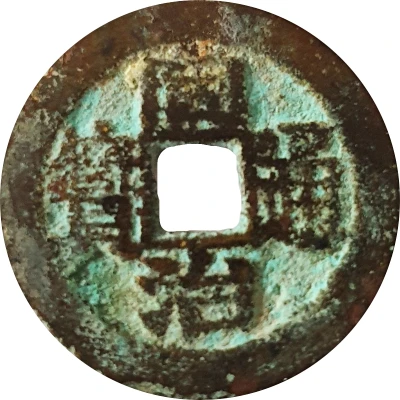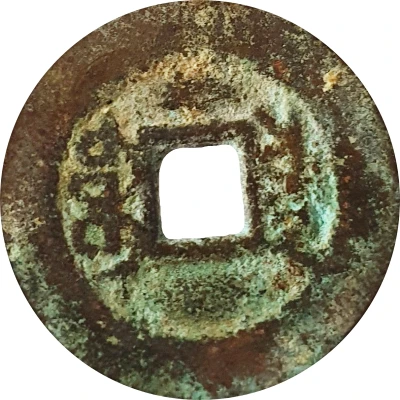


© M. Wolters
1 Cash - Tongzhi Tongbao; Boo-chuwan ND
| Bronze | 4.01 g | 23 mm |
| Issuer | Empire of China |
|---|---|
| Emperor | Qing dynasty › Tongzhi (同治帝) (1861-1875) |
| Type | Standard circulation coin |
| Years | 1862-1874 |
| Value | 1 Cash |
| Currency | Cash (621-1912) |
| Composition | Bronze |
| Weight | 4.01 g |
| Diameter | 23 mm |
| Shape | Round with a square hole |
| Technique | Cast |
| Orientation | Medal alignment ↑↑ |
| Demonetized | Yes |
| Updated | 2024-10-04 |
| Numista | N#181854 |
|---|---|
| Rarity index | 85% |
Reverse
Two Manchu words (read vertically) separated by the hole.
Script: Mongolian / Manchu
Lettering: ᠪᠣᠣ ᠴᡠᠸᠠᠨ
Translation: Boo-chuwan
Edge
Plain
Comment
DocBooProtInteresting fact
One interesting fact about the Standard circulation coin 1 Cash - Tongzhi (Tongbao; Boo-chuwan) ND (1862-1874) from Empire of China made of Bronze weighing 4.01 g is that it was designed by a French engraver named Charles F. Châtelain, who was commissioned by the Chinese government to create a new currency for the country. Châtelain's design featured a central hole, which was a unique feature for coins at the time and was intended to make the coin easier to handle and stack. The coin was also made of bronze, which was a more durable and affordable material than previous Chinese coins, which were made of silver or gold.